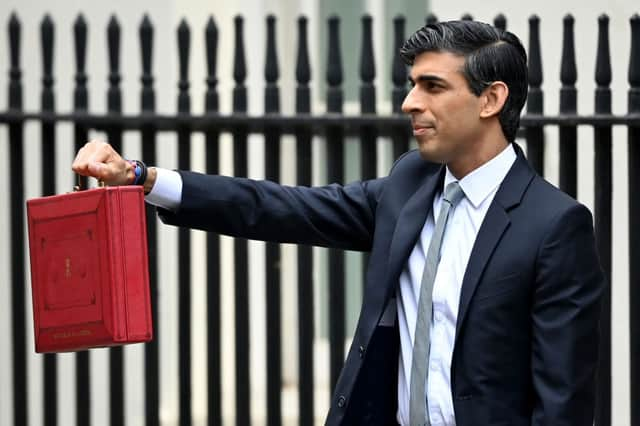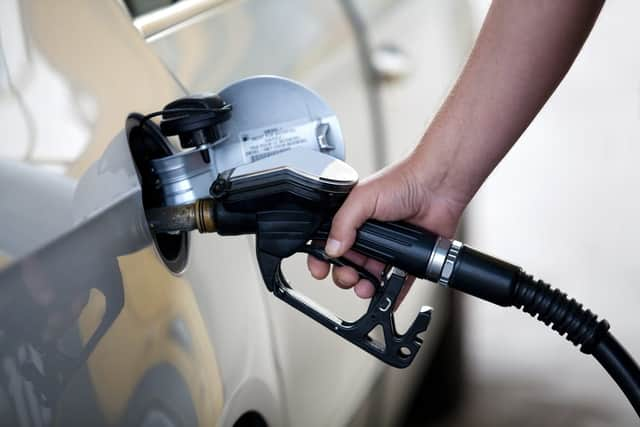Budget 2021: What it means for motorists, including impact on fuel duty, car tax and electric cars


Chancellor Rishi Sunak has announced his Budget for 2021 with the extension of schemes to aid businesses and individuals affected by Covid and lockdown.
He also announced planned changes to corporation tax, freeports to ease international trade and an income tax freeze.
Advertisement
Hide AdAdvertisement
Hide AdAnd motorists also got a brief mention, with declarations on fuel duty and car tax.
Here’s what the Budget means for drivers.
Fuel duty frozen
The key motoring-related announcement by the Chancellor was that fuel duty is once again to be held at 57.95p per litre. That means the tax will remain unchanged for the 11th year in a row.
Mr Sunak said: “Right now, to keep the cost of living low, I'm not prepared to increase the cost of a tank of fuel. So the planned increase in fuel duty is … cancelled.”
Fuel duty makes up almost half of the price of a litre of petrol and before the Budget industry observers had warned that an increase could put further burden on motorists.
Advertisement
Hide AdAdvertisement
Hide Ad

RAC head of policy Nicholas Lyes said: “Drivers will breathe a sigh of relief that the Chancellor has decided not to ‘rock the fuel duty boat’. We feared this would only pile further misery on drivers at a time when pump prices are on the rise and many household incomes are being squeezed as a result of the pandemic.
“Many drivers see their cars as a safe way to carry out essential journeys and believe having access to a vehicle is even more important as a result of the pandemic. If the Chancellor had raised fuel duty, he could have risked choking any economic recovery as it would have led to increased costs for consumers and businesses.”
The AA’s president Edmund King added: "We are on the road to recovery so this freeze in fuel duty helps to keep us on track. It will be welcomed by the car-dependent, key workers and all businesses that rely on road transport. It will also help clinically vulnerable people who need to avoid public transport to keep safe due to the pandemic.”
Vehicle Excise Duty
As expected, Vehicle Excise Duty - car tax to you and me - will increase in line with RPI inflation from 1 April 2021. That means annual tax for cars registered on or after 1 April 2017 will rise to £155 a year, with a £10 discount for hybrids. The “premium” tax on cars costing more than £40,000 will also rise to £335 per year for years two to six of ownership.
Advertisement
Hide AdAdvertisement
Hide AdTax rates are also increasing for older cars. For cars registered between 1 March 2001 and 31 March 2017 they will rise by £5, £10 or £20 depending on the vehicle’s emissions. For cars registered before March 2001, they will increase by £5 for vehicles with an engine size of 1549cc or less and £10 for anything with an engine above 1549cc.
Electric cars
VED remains at zero for electric cars and other zero-emissions vehicles for another year. Last year the Treasury also scrapped the premium tax on zero-emissions cars costing more than £40,000, meaning EV drivers pay no vehicle tax on their cars.
However, drivers with an EV company car will have to start paying Benefit in Kind tax from this April. Last year BiK rates on EVs were cut to zero to encourage sales but from April the rate will increase to one per cent, rising to two per cent in 2022.